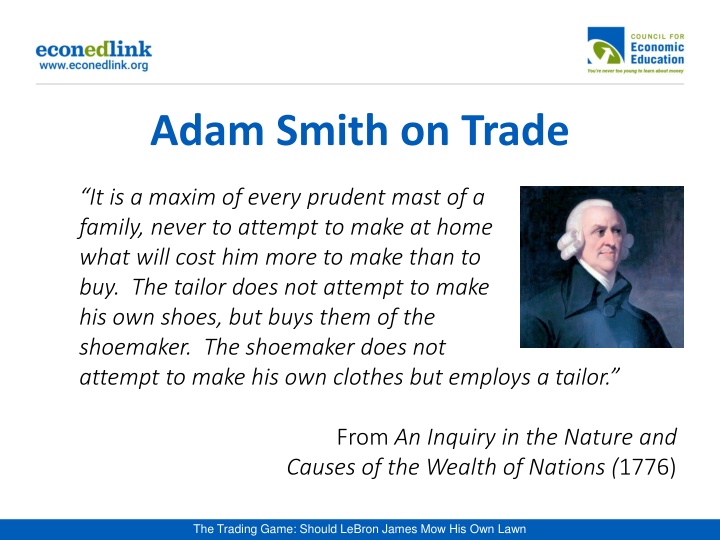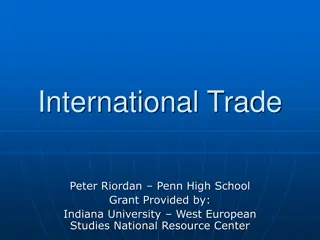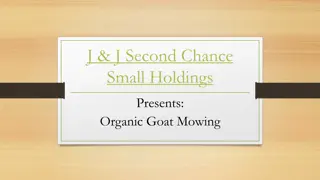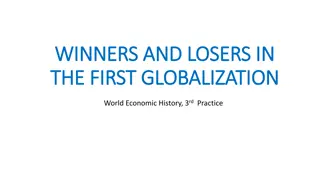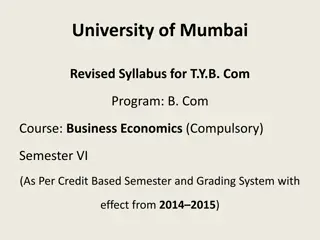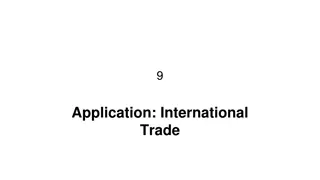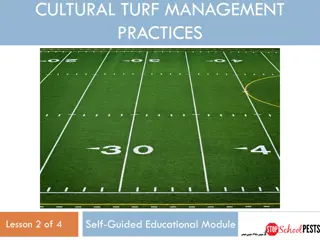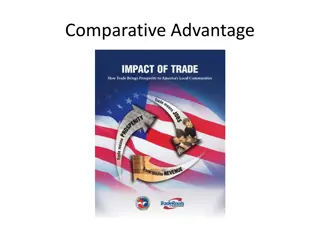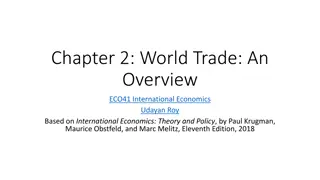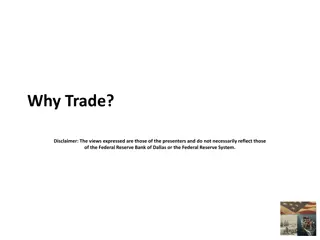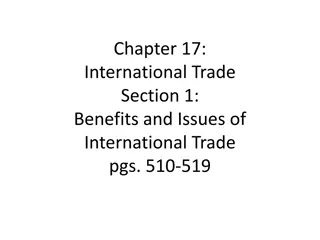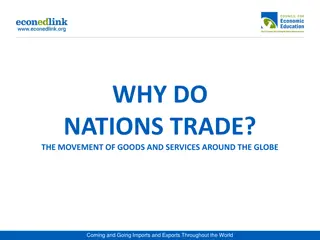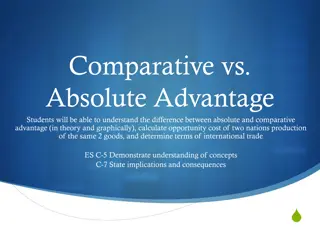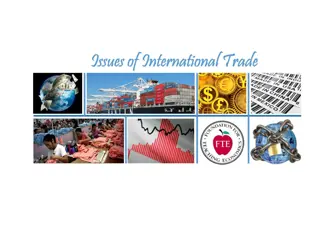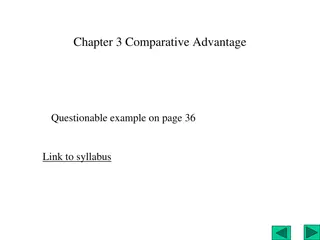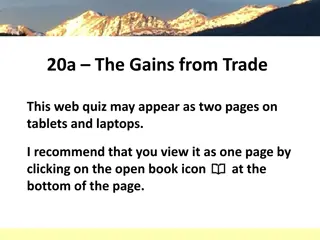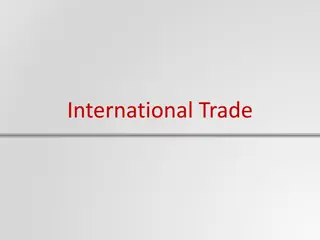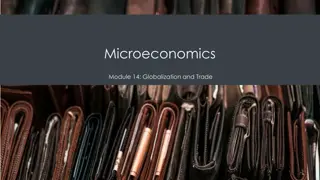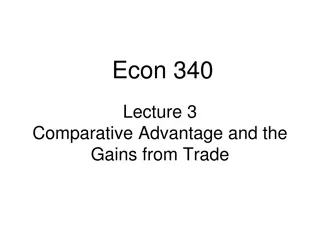Trade and Comparative Advantage: LeBron James' Lawn Mowing Dilemma
In Adam Smith's words on trade, it is prudent to buy rather than make if it costs more to produce at home. Applying the concepts of absolute and comparative advantage, this text explores whether basketball star LeBron James should mow his own lawn or have his neighbor, Scotty, do it more efficiently. The discussion delves into the productivity and opportunity costs, shedding light on economic principles in a simple yet relatable scenario. Additionally, a sports economic mystery involving Babe Ruth adds an engaging twist to the narrative.
Download Presentation

Please find below an Image/Link to download the presentation.
The content on the website is provided AS IS for your information and personal use only. It may not be sold, licensed, or shared on other websites without obtaining consent from the author.If you encounter any issues during the download, it is possible that the publisher has removed the file from their server.
You are allowed to download the files provided on this website for personal or commercial use, subject to the condition that they are used lawfully. All files are the property of their respective owners.
The content on the website is provided AS IS for your information and personal use only. It may not be sold, licensed, or shared on other websites without obtaining consent from the author.
E N D
Presentation Transcript
Adam Smith on Trade It is a maxim of every prudent mast of a family, never to attempt to make at home what will cost him more to make than to buy. The tailor does not attempt to make his own shoes, but buys them of the shoemaker. The shoemaker does not attempt to make his own clothes but employs a tailor. From An Inquiry in the Nature and Causes of the Wealth of Nations (1776) The Trading Game: Should LeBron James Mow His Own Lawn
The Theory of Absolute and Comparative Advantage Absolute Advantage: The comparison among producers of a good according to their productivity. Who can produce using fewer resources? Comparative Advantage: The comparison among producers of a good according to their opportunity cost. Who can produce with a lower opportunity cost? The Trading Game: Should LeBron James Mow His Own Lawn
LeBron James: Absolute and Comparative Advantage LeBron James is a great basketball player and a great lawn mower. James can mow his lawn in 2 hours. What is his opportunity cost? Little Neighbor Scotty can mow James lawn in 4 hours. What is his opportunity cost? The Trading Game: Should LeBron James Mow His Own Lawn
LeBron James: Absolute and Comparative Advantage Who has the absolute advantage in mowing grass? Who has the comparative advantage in mowing grass? If we are seeking the most efficient solution, who should mow James lawn? The Trading Game: Should LeBron James Mow His Own Lawn
A Sports Economic Mystery Why did the Boston Red Sox stop using the best left-handed pitcher in baseball in 1918? He helped win World Series in 1916 and 1918. In the 1918 World Series, he won two games and set a record for consecutive scoreless innings (a record not broken until 1961.) From 1915 to 1918, he was 78-40 with an ERA under 2.00. He played until 1935 but rarely pitched again. Who was this player? The Trading Game: Should LeBron James Mow His Own Lawn
Who Was this Player? Herman Babe Ruth Best pitcher in the American League of his time, no doubt. Ken Burns Image result for Ken Burns on Babe Ruth The Trading Game: Should LeBron James Mow His Own Lawn
To Trade or Not to Trade? If you have an absolute advantage in everything, can you still benefit from specialization and trade? Specialize where you have a comparative advantage. Babe Ruth: The best hitter and best pitcher of his generation. The Trading Game: Should LeBron James Mow His Own Lawn
The Man Could Hit! 3rd on home run list 714 10th in batting average .342 2nd on RBI list 2,213 2nd on all-time slugging % .690 2nd on all-time on-base % .474 1st on all-time OPS 1.164 4th on all-time runs list 2,174 6th on all-time total bases list 5,793 3rd on all-time walks list 2,062 In 1920, Ruth hit 54 home runs. Baseball historians suggest this is equivalent to hitting 136 today. It was more home runs than any other team in the American League. Only the Phillies hit more in the NL 64. The Trading Game: Should LeBron James Mow His Own Lawn
